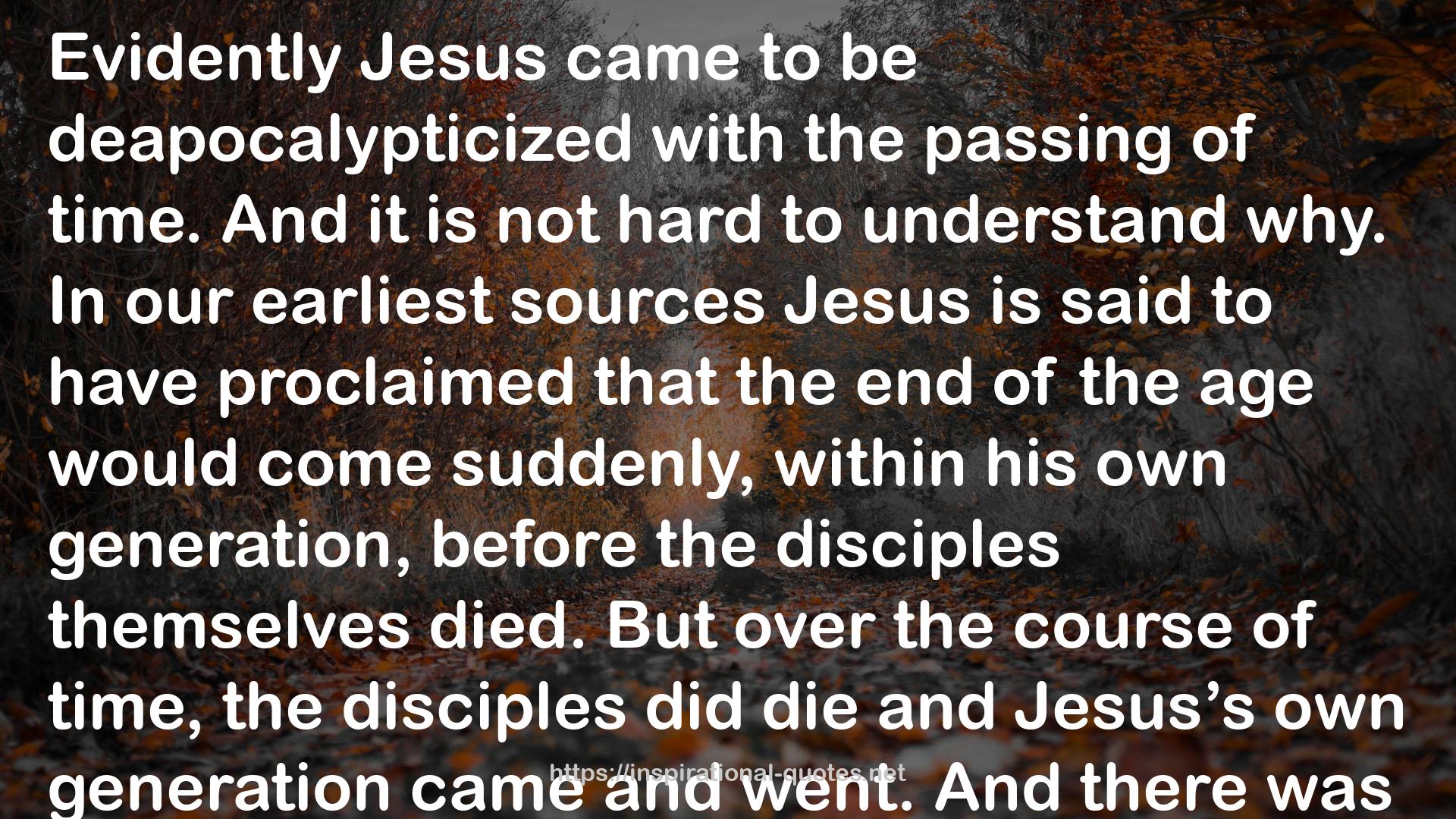" Evidently Jesus came to be deapocalypticized with the passing of time. And it is not hard to understand why. In our earliest sources Jesus is said to have proclaimed that the end of the age would come suddenly, within his own generation, before the disciples themselves died. But over the course of time, the disciples did die and Jesus’s own generation came and went. And there was no cataclysmic break in history, no arrival of the Son of Man, no resurrection of the dead. What were later Christians to do with the fact that Jesus predicted that “all these things” would take place in his hearers’ lifetimes when in fact the predictions did not come true? They took the obvious next step and changed the tenor and content of Jesus’s preaching so that he no longer predicted an imminent end of the age. Over time, Jesus became less and less an apocalyptic preacher. This move to deapocalypticize Jesus was enormously successful. Down through the Middle Ages and on to today, the vast majority of people who have considered Jesus have not thought of him as an apocalyptic preacher. That is because the apocalyptic message that he delivered came to be toned down and eventually altered. But it is still there for all to see in our earliest surviving sources, multiply and independently attested. "
― Bart D. Ehrman , Did Jesus Exist?: The Historical Argument for Jesus of Nazareth
